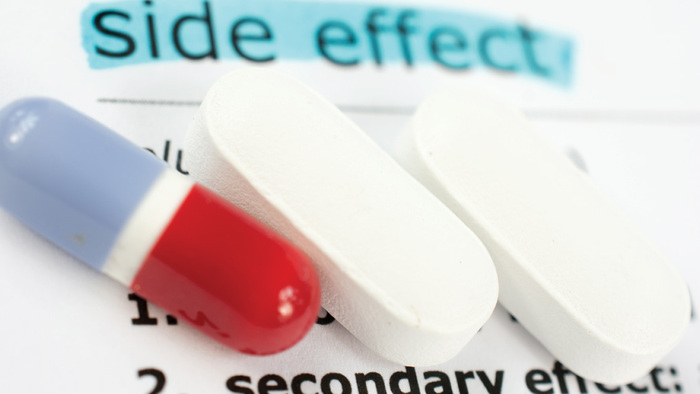I’ve been completely flummoxed lately by my aging body’s inability to shed what I have come to believe is a side effect of a drug I no longer take. It’s become quite a mystery.
I had reached out to my doctor a few weeks ago to discuss a blood pressure med and the neuropathy — a tingling and numbness throughout the left side of my body — I’d been experiencing since I began taking it. She promptly advised me to stop using the drug, a popular ACE inhibitor with a reputation for neuropathic annoyances, and prescribed what we both agreed would be a safer alternative.
In the days that followed, the episodes seemed to ease somewhat; during one three-day stretch, I suffered no attacks and figured the new drug had kicked in and the old one had exited my system. It was a short-lived reprieve, however. Last week, I was hit once or twice each day, sometimes with as much intensity as before.
Just as I was beginning to consider whether my symptoms may be something more complicated than a pharmaceutical hiccup, I happened upon a study published last week in the journal mSystems. The study found that a number of popular medications change the microbial balance in the gut microbiome, contributing to a variety of physiological and psychological ailments. And these drug-induced imbalances can remain for years after we wean ourselves from the medications.
“Most microbiome studies only consider current medications, but our results show that past drug use can be just as important, as it is a surprisingly strong factor in explaining individual microbiome differences,” notes lead study author Oliver Aasmets, PhD, a researcher at the Estonian Genome Center.
Aasmets and his team analyzed stool samples and prescription records from more than 2,500 participants in a national biobank database and found that a majority of medications caused changes in the gut’s microbial mix that remained for as long as five years after participants stopped using the drugs. The types of meds whose effects were found to linger included antibiotics, psycholeptics, antidepressants, proton pump inhibitors, and beta-blockers.
“The long-term effect of drug exposure may have a major influence on our physiology, highlighting the need to understand the full extent of such effects across diverse drug classes,” Aasmets writes.
And yet there’s no specific mention of ACE inhibitors and their effect on our microbial mix in his report, nor of calcium channel blockers — the two drugs I’d been taking for the past couple of years to ease my hypertension. Indeed, digging into other research, I discovered that ACE inhibitors tend to contribute to a healthier gut microbiome. The same goes for the angiotensin receptor blocker (ARB) I’ve been taking since dropping the former drug. So maybe it’s not about some lingering drug-induced microbial mix-up after all.
Or is it? What about the statin I’ve been faithfully taking for the past two years?
A 2024 study found that statins — specifically the atorvastatin I’ve been using — may cause gut dysbiosis. Researchers found that participants using this medication hosted an overabundance of six specific bacteria when compared with untreated patients. The results, researchers note, could “influence the gut-brain axis.”
“The interplay of bacterial species and their abundances may have a greater impact on brain diseases than individual drugs or bacterial strains,” they concluded.
Perhaps that explains the results of a 2022 study in the International Journal of Molecular Sciences that found “patients on statin therapy may develop a peripheral neuropathy, complaining of numbness, tingling, pain, and tremor at hands or feet, as well as unsteadiness during walking.” While relatively rare, the authors add, “the incidence of polyneuropathy has been reported more frequently with atorvastatin than with fluvastatin.”
Hmmm.
If my recent experience amid the Medical-Pharmaceutical Complex has taught me anything, it’s the folly of accepting too readily particular scientific conclusions. There are no doubt a handful of studies challenging the above results. But there’s no future in passively accepting a puzzling medical condition, either. That’s what doctors are for, right?





This Post Has 0 Comments